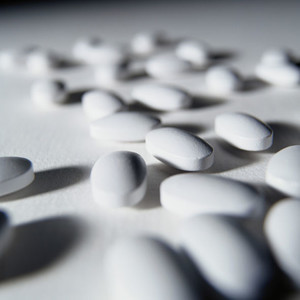India has increased the number of drugs it considers ‘essential’ and therefore for which it controls the maximum retail price in the country.
India caps prices of 530 essential drugs
Home/Policies & Legislation
|
Posted 15/04/2016
 0
Post your comment
0
Post your comment

India has increased the number of drugs it considers ‘essential’ and therefore for which it controls the maximum retail price in the country.
The Indian Government, via the introduction of a new Drug Price Control Order (DPCO) in May 2013, now regulates the prices of at least 800 ‘essential drugs’ included in the country’s National List of Essential Medicines [1]. Drugs on the list include those used in the treatment of cancer, HIV/AIDS, cardiovascular diseases and Hepatitis C.
The DPCO 2013, which affects both brand-name and generic drugs, replaced the previous 1995 Order, which was based on production costs for drugs and regulated the prices of just 74 active pharmaceutical ingredients (APIs) and their finished formulations. The new DPCO on the other hand uses a market price-linked cap for each drug [1].
On 4 March 2016, drug price regulator the National Pharmaceutical Pricing Authority (NPPA) fixed the price ceiling of 530 essential medicines resulting in the price reduction of 40% for 126 drugs. These prices will become effective from 1 April 2016 under the DPCO 2013.
To control the high prices of medical devices such as stents and implants, the Department of Pharmaceuticals has also proposed to the Indian Health Ministry to bring them under the DPCO.
Related articles
India drops planned price caps on non-essential drugs
India planning to extend drug pricing control to more drugs
India plans further cuts to drug prices
Reference
1. GaBI Online - Generics and Biosimilars Initiative. India introduces new drug pricing control [www.gabionline.net]. Mol, Belgium: Pro Pharma Communications International; [cited 2016 Apr 15]. Available from: www.gabionline.net/Policies-Legislation/India-introduces-new-drug-pricing-control
Permission granted to reproduce for personal and non-commercial use only. All other reproduction, copy or reprinting of all or part of any ‘Content’ found on this website is strictly prohibited without the prior consent of the publisher. Contact the publisher to obtain permission before redistributing.
Copyright – Unless otherwise stated all contents of this website are © 2016 Pro PharmaCommunications International. All Rights Reserved.
Source: Economic Times India, IBT, NPPA
Guidelines
US guidance to remove biosimilar comparative efficacy studies
New guidance for biologicals in Pakistan and Hong Kong’s independent drug regulatory authority
WHO to remove animal tests and establish 17 reference standards for biologicals

Home/Policies & Legislation Posted 07/01/2026
ANVISA tackles 24-month backlog in biologicals post-registration petitions

Home/Policies & Legislation Posted 10/10/2025
The best selling biotechnology drugs of 2008: the next biosimilars targets








Post your comment